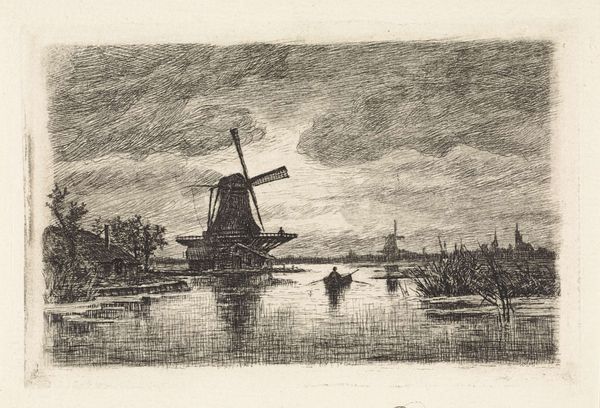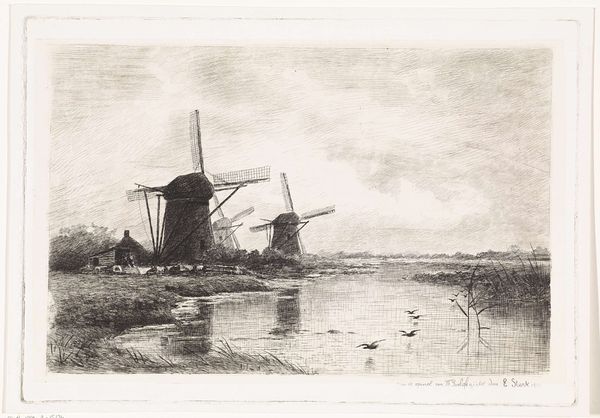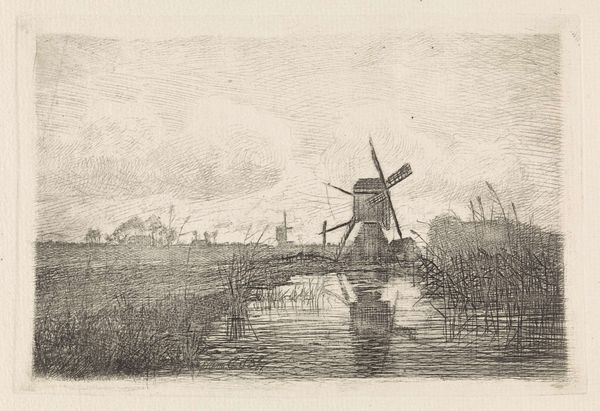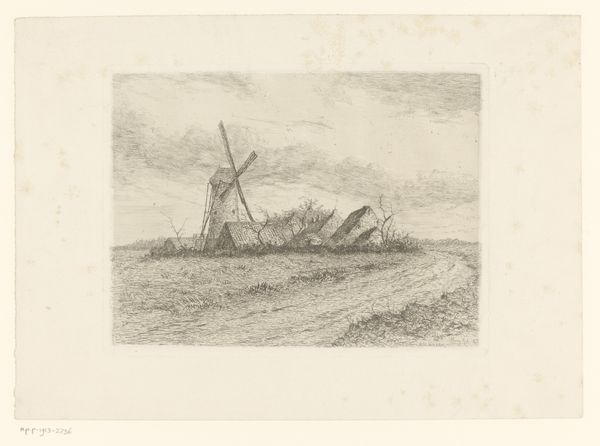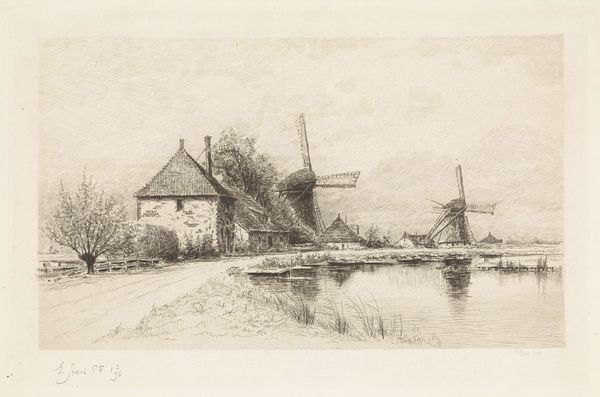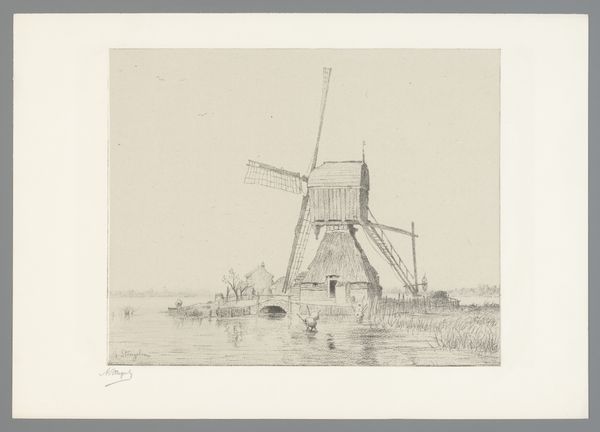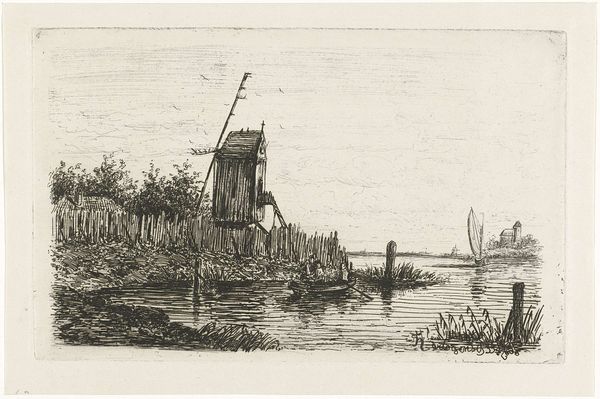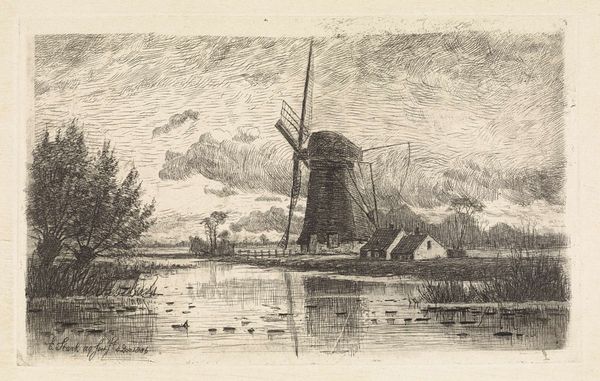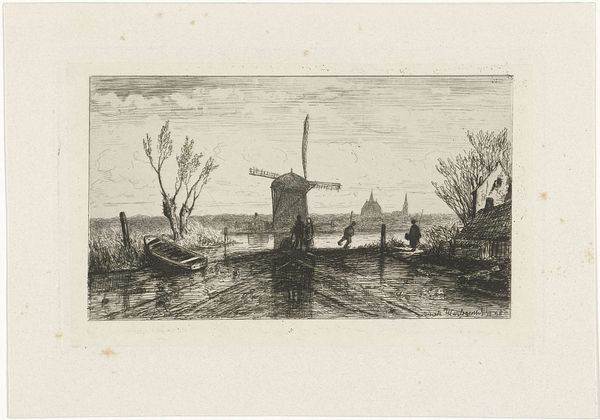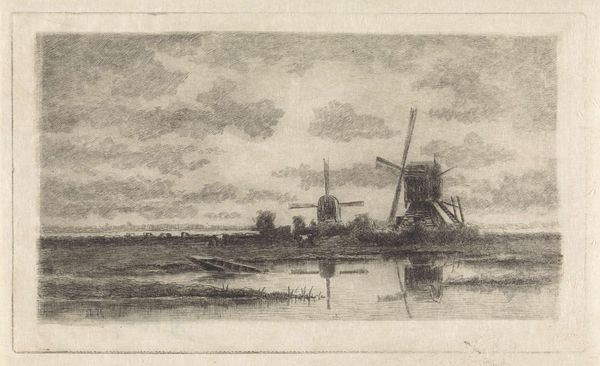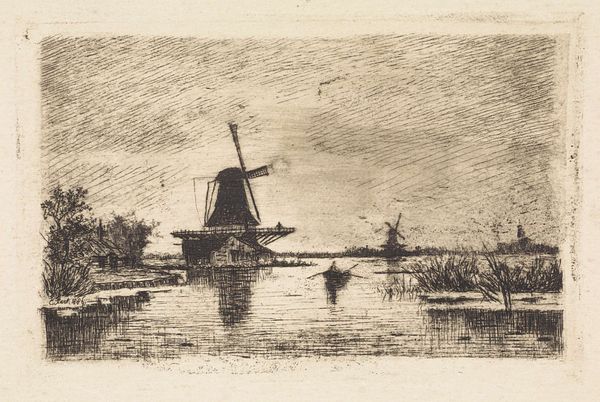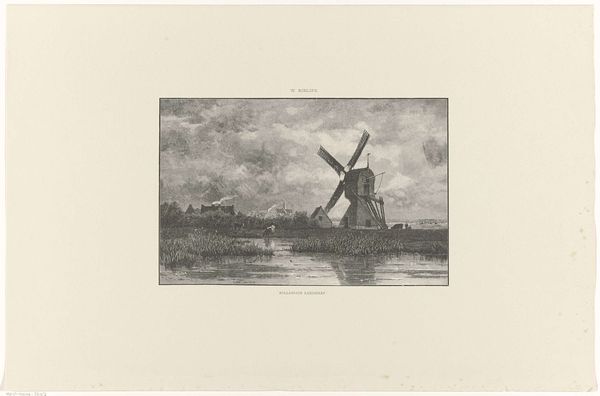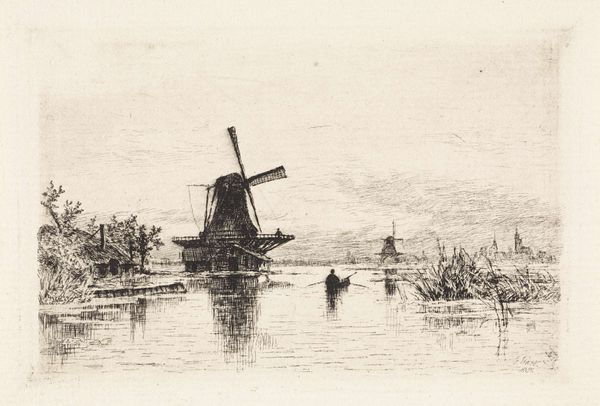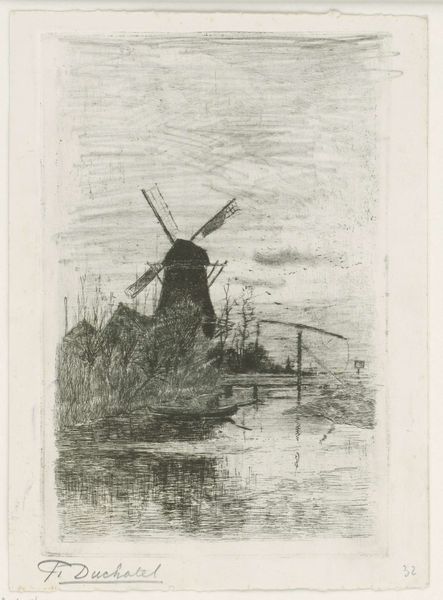
print, etching
#
dutch-golden-age
# print
#
etching
#
landscape
#
genre-painting
Dimensions: height 212 mm, width 374 mm
Copyright: Rijks Museum: Open Domain
Herman Lowenstam made this landscape with windmills drawing, sometime in the mid to late 19th century, using etching. Dutch windmills have, since the Golden Age, served not only as a source of power but also as a cultural symbol, a visual shorthand for the nation's identity. Think of painters like Jacob van Ruisdael or Jan van Goyen. But by the late 19th century, industrialization threatened this traditional landscape. Etchings like this one, which were relatively cheap to produce and disseminate, played a crucial role in shaping public perception and preserving cultural memory. They could be seen as acts of resistance against the erasure of traditional ways of life. To understand the historical context better, we can explore archives, period publications, and socio-economic studies of the period. Only then can we appreciate the true significance of art within its ever-changing world.
Comments
No comments
Be the first to comment and join the conversation on the ultimate creative platform.
